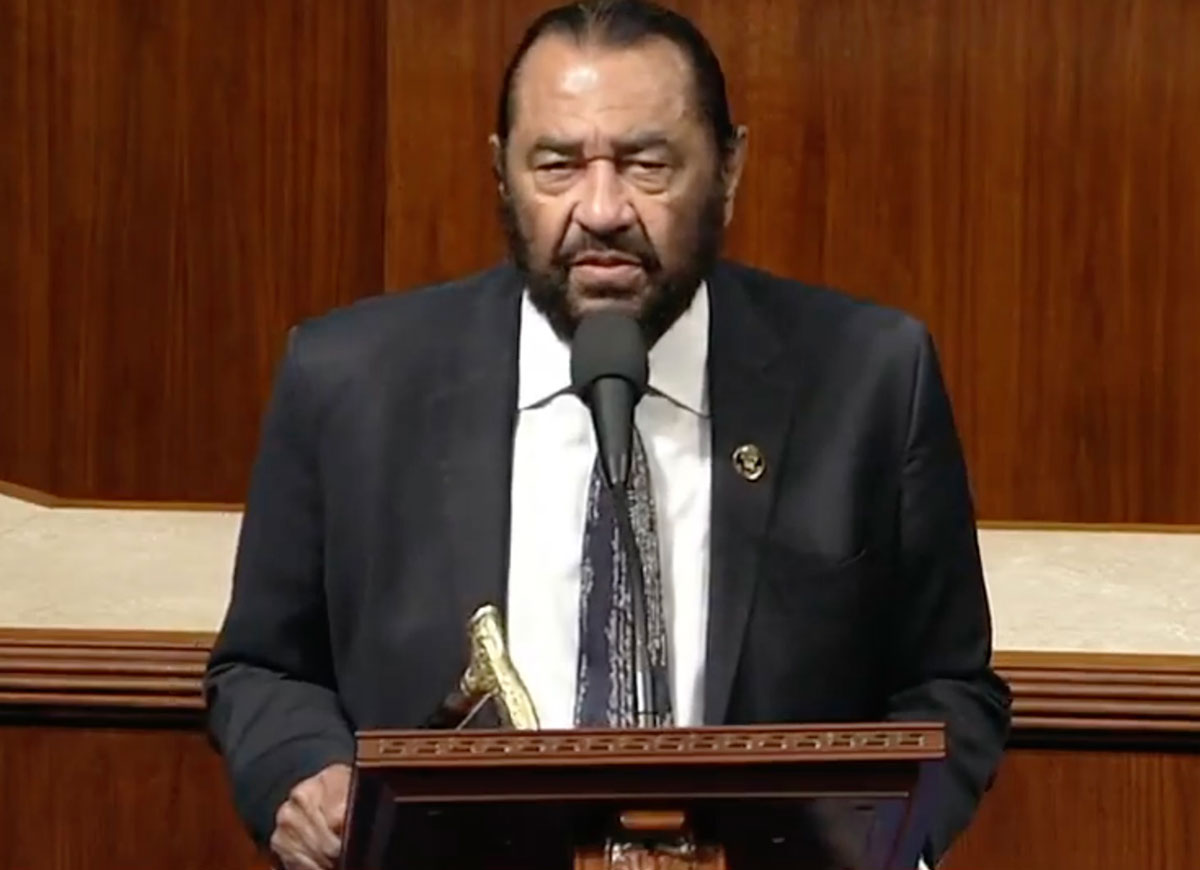Director Sudhanshu Saria And Shiv Pandit On ‘Loev,’ Gay Life In India, SXSW [EXCLUSIVE VIDEO]
Sudhanshu Saria wrote and directed the film Loev screeeing this week at SXSW, which stars Bollywood leading man Shiv Pandit as a gay Wall Street banker, who ends up falling for an old pal and consequently becomes embroiled in a love triangle.
Sudhanshu Saria & Shiv Pandit On ‘Loev’
Saria started writing the script for Loev as a way of coping with his own relationship woes. He wrote it with the freedom of someone who thought that he’d be the only one to see his work. The emotional honestly of Loev ended up proving to be what made it attractive to producers and actors, including Pandit.
“It came out of heartbreak. Instead of going to a strip club or drinking with my buddies or a therapist, I wrote about it. I think I was able to be honest and vulnerable only because I didn’t think the film would even get made,” Saria told uInterview in an exclusive interview. But, “People came forward, and production companies came forward and actors came forward, and people like Shiv, who’ve actually had tremendous success working in mainstream cinema, who looked at this and said, ‘You know what? I identify with this. I think it’s something we should get made.'”
Pandit explained that it was Saria’s script for Loev that drew him to the project. It was relatable, it was apolitical, and it had a depth to its simplicity.
“As an actor you read a lot of scripts and when Sudhanshu’s script came to me, what really leapt out of the script for me was that there was no agenda. It wasn’t agenda-driven. There was no political context to it,” said Pandit. “It was just a simple love story, which happened to be about men. Another thing that really interested me about the script was that the gender in the script really did not matter, you could literally replace the characters with another gender…. It was so deceivingly simple, yet it had a deeper meaning to it.”
While Loev screened at SXSW and has screened at other festivals around the world, it hasn’t screened in India, where it was filmed. With how movies are pre-screened and censored in India, both Saria and Pandit fear that scenes will be chopped from it, leaving a product that lacks the essence of the movie that they made together.
“I have not been worried about the film being screened in any other country in the world. And I’m literally freaked out about this film being screened in my own country, only because I just want it to land on the right foot with the audience and the government and the censor control,” said Pandit.
Saria added, “I think we’re also very possessive about the film. We want it to be presented in the way that it is. It’s honestly nothing anti-seditious, there’s nothing in it, it’s just a nice love story. […] It’s a progressive film for the modern Indian, but one can never predict what the authorities do so we just hope they look at us for who we are rather than based preconceived notions on our agendas. ”
Pandit believes that interest in the film is growing in India, and Saria senses that those who are eager to see Loev will find a way to see it whether or not the complete film is ever officially released in the country. No matter what happens down the road with the film, Saria is proud to have made Loev, and is hopeful that it will encourage other filmmakers to push the boundaries of storytelling in India.
“I think even if [Loev] does a little bit to move the needle and encourage other filmmakers who are thinking of telling stories like this to step up, I think that’s a huge step in the right direction,” Saria told uInterview. “I think the fact that the film’s been made, the fact that the characters have been treated with dignity, it’s a huge win for the LGBTQ community back home that is starved of dignified, realistic representations of their own culture, on the big screen.”
It came out of heartbreak. Instead of going to a strip club or drinking with my buddies or a therapist, I wrote about it. I think I was able to be honest and vulnerable only because I didn’t think the film would even get made. The idea of financiers or actors falling over themselves to invest money in a film that’s virtually unreleasable in its own country is highly unlikely. I think I just sort of focused on the script. It was helping me get over this s--t anyway, and when I went back to Mumbai, which is not a city I really worked in, not an industry I got too much background in, the city really surprised me. People came forward, and production companies came forward and actors came forward, and people like Shiv, who’ve actually had tremendous success working in mainstream cinema, who looked at this and said, ‘You know what? I identify with this. I think it’s something we should get made.’ So, in a way, I was the most cynical person on the team. Every hardship we’ve faced, I’ve expected it. Every kindness, every gratitude we’ve received, I’ve been overwhelmed and surprised by. That’s what kind of keeps you going at the end of the day, I cannot believe we’re here standing in South by Southwest in Austin when a year ago I didn’t even think we would end up completing the film. I think it’s just been on big sort of ice cream sundae with many cherries on top.
I think as an actor you always look for good content. So that was the first point of decision making in my head, because what happens is that as an actor you read a lot of scripts and when Sudhanshu’s script came to me, what really leapt out of the script for me was that there was no agenda. It wasn’t agenda-driven. There was no political context to it. It was just a simple love story, which happened to be about men. Another thing that really interested me about the script was that the gender in the script really did not matter, you could literally replace the characters with another gender, and I think that is what was most interesting thing about the film. It was so deceivingly simple, yet it had a deeper meaning to it. I had seen Sudhanshu’s earlier short film and I knew that this guy can handle. He’s pretty technologically savvy, and he knows what he’s talking about. I think for me, I always like to work with people who would challenge me as an actor and there was something about Sudhanshu which told me I would certainly be on my toes and here I am.
Sudhanshu: He didn’t give me any of those compliments though. I think it was definitely like I was like, ‘Oh my god this giant actor is doing me a favor I better make sure I do…’
Shiv: I literally just tried to lie in front of uInterview just so you could feel better about yourself.
Sudhanshu: I'm a director, that's never going to work.
Sudhanshu: We’ve never done a screening in India. My mom has never seen it for example, which is really my target demographic here. At festivals we get asked like, ‘Are you sure the film will be censored?’ By way of example, James Bond wasn’t allowed to kiss Monica Belluci in the last Bond film, so I think it’s certain that we’ll be censored. But, the country is also going through tremendous change right now and there’s a new censorship policy they’re looking at, a new certification. So the thing is, you get to do it once and I want to do it right. So by screening the film outside of India, in Estonia, in Poland, Istanbul, here, Melbourne, Tel Aviv, I think we’ve been invited to terrific festivals. We’re setting up context for the country.
Shiv: I think that’s pretty surprising because we’ve been traveling with the film and everyone keeps asking me, ‘What are your thoughts on this film?,’ and literally I have not been worried about the film being screened in any other country in the world. And I’m literally freaked out about this film being screened in my own country, only because I just want it to land on the right foot with the audience and the government and the censor control.
Sudhanshu: It’s like the third Bourne movie, you know. Jason Bourne, when he’s in London, it’s OK and then he comes home and we’re all like, ‘Is he gonna screw this up?’ I think we’re also very possessive about the film. We want it to be presented in the way that it is. It’s honestly nothing anti-seditious, there’s nothing in it, it’s just a nice love story. I think especially with the culture of Bollywood, Indians, we love cinema, we love romance, and I think they’re gonna have a great time. It’s a progressive film for the modern Indian, but one can never predict what the authorities do so we just hope they look at us for who we are rather than based preconceived notions on our agendas.
Shiv: We have a backup plan. We screen the film in his [Sudhanshu] living room so we will be selling tickets, for that special private screening. [Laughs]
Sudhanshu: It’s a small living room.
Sudhanshu: There’s a certification board, much like in the U.S., where actually it’s not a government body, it’s an independent body that certifies what we film. As long as the independent body does a good job, the government is okay with it. In India, we have a certification body that every film is supposed to go through. India, rightly so, is a very complex country with many communities, many lines of poverty, levels of education, so the wrong film can easily incite the wrong community or right community. It’s actually much more complicated. I applaud them for the amount of work they do, because I think it’s some 1300 odd films a year, it’s really difficult to keep track. But, at the same time, the certification body has become a censorship body because they refuse to certify you until you make certain cuts that they think will make the film more appropriate for the audience. Some of these ideas are old-fashioned, some of these ideas are antiquated. Because we live in the culture of YouTube, people will see what they wanna see. You think anyone’s not gonna watch Deadpool the way they wanna watch Deadpool. I think we can’t be stopped, but at the same time, from an official authority point of view, they do have a responsibility to look and set a higher standard. Somewhere in there is where the confusion happens. Some films get luckier than others. We’re hoping if we frame the right context and go in the right channels…
Shiv: But, that’s what I’m worried about, because we’re literally so small that this film can easily be dismissed. I mean, it doesn’t have the backing of a huge commercial success in terms of production house, an actor, a director…
Sudhanshu: Literally, the two of us. We got two changes of shirts and one backpack.
Shiv: I think, we both, collectively, are most concerned about how this film will be perceived in India. I think we’re already seeing a great response in terms of the audience, people who are getting to know about the film through the articles and clips, snippings online. There’s a huge interest from the community back home to actually see this film. Then again, it all depends on the censor board.
Sudhanshu: It’s baby steps, one thing at a time. When we started it was just a script that I didn’t think anybody would want to even do, and then we got this amazing production company, Bombay Berlin Film Productions, that stepped forward and said, ‘We’re gonna get behind this content’ – to the point where I literally had to head out for coffee and go, ‘Are you serious?’ But, Loev has always surprised us at every turn, and let’s just see what happens. Even at the end of the day we’re already so thrilled with where we are, and I think even if it does a little bit to move the needle and encourage other filmmakers who are thinking of telling stories like this to step up, I think that’s a huge step in the right direction against this symbolic, oppressive law, that section 377, we’ve got in our country that criminalizes sodomy, which is actually really where the main fear comes from. That in a country, where it’s punishable by life imprisonment to be a homosexual person, will the certification body let this love story through given it takes place between two men? I think that’s sort of where the dance is, but I think the fact that the film’s been made, the fact that the characters have been treated with dignity, it’s a huge win for the LGBTQ community back home that is starved of dignified, realistic representations of their own culture, on the big screen.
RELATED ARTICLES
Get the most-revealing celebrity conversations with the uInterview podcast!



![Director Sudhanshu Saria And Shiv Pandit On ‘Loev,’ Gay Life In India, SXSW [EXCLUSIVE VIDEO]](https://cdn-o9.uinterview.com/wp-content/uploads/2016/04/news-loev-movie.jpg)
 by
by  Click here for the Vanity Fair Oscar Party: Best Dressed Slideshow
Click here for the Vanity Fair Oscar Party: Best Dressed Slideshow



Leave a comment